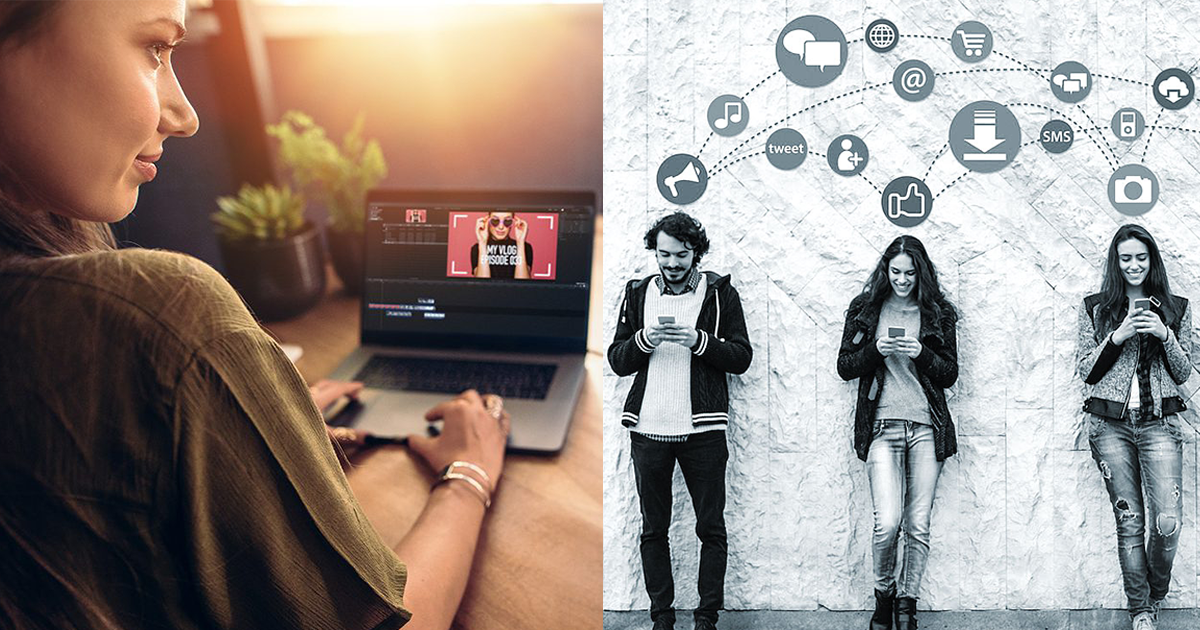Waking up to beeps of messages, showering to latest tunes, having breakfasts while scrolling to social platforms’ feeds, all add up to our daily morning routines. The last thing we use before closing our eyes is our phones and the first in the morning is that only. Social media has become an integral part of our minds, our bodies. Approximately 3.2 billion people out of a world population of 7.7 billion are active social media users. That makes up around 42% of the whole population!
An average of 2.22 hours is spent daily by an individual on social media and messaging. No doubt that social media is driving us crazy. It is on a “roller coaster that only goes up”. But it’s not only messaging and chatting that attracts people to use social networks. The revolution led by social media is much more intense and deep than any one of us can ever imagine. Different people of different professions are using various platforms in their own way to benefit either their individual or business needs. Let’s see how:
Branding
Social Media is widely used for promoting brands and reaching target audiences very easily. When almost half of the world’s population is online, it automatically becomes quite easy to reach your customers, engage them in your marketing strategies and earn profits.
For example: Brands as Amazon, Flipkart, and other merchandising brands are active socially to create an impact & to influence the audience in the real world.
Creating Social Responsibility & Awareness
Hashtags like #MeToo created wonders on social media platforms like Facebook, Twitter and Instagram. People are now switching to virtuality to help bring a change in reality. And no doubt that it’s working. 90% of the youth uses these platforms and it’s here that they come to join awareness campaigns, donation apeals, fundraising programs, etc.
Broadcasting Ourselves
The number of users using social media is growing with Facebook & Instagram becoming the leading social media platforms. They provide almost every single opportunity to broadcast oneself to the whole world: messaging, video chats, updating people about personal achievements and other major life updates, hosting podcasts and live meetings, etc. Followed by Facebook is Youtube, with 1.9 billion MAUs, a platform from where major bands and singers are emerging, booktubers are earning money at home through mediums as TikTok, etc. Social Media is not only a virtual space to connect people, but is a spotlight under which people are exploring and showing their talents.
Social Television
Although many people are using this technology, a lot of them are not knowing what technically it’s called as. Ever tweeted your views for any reality show during the show or broadcast? Yes, that’s what social televsion is: a combination of social networking platforms and TV. And it’s not only you, the celebrities or even the participants of the show live tweet, updating the sector of the population that is not stuck to television screens.
Augmented Reality (AR)
It would be a stupid question to ask if anyone remembers the Nintendo’s Pokémon Go App. With up to 65 million users, this game is the best example of Augmented Reality. AR is a technology that expands our physical world, it makes us feel objects that don’t exist in the real world. It just adds digital information on-screen which superimposes the real world, just like you could see and catch your favorite pokemons while also witnessing your actual surroundings.
Influencers and Their Impact
Every niche of social media influences us in one way or the other. But there is a particular category of people termed as “influencers” who affect our choices, habits, inclinations, likes and dislikes to a great extent. They keep posting about the latest beauty hacks, make-up tips, and tutorials, latest trends, etc. Like such, there are different influencers from different industries. Mir Khubaib (bookstagrammer), Sandeep Maheshwari (motivator), Marian Ezzedine (cookstagrammer), etc. are some influencers affecting our youth.
According to a survey, 70% of teenagers say that they trust these influencers more than celebrities because of their particular interests and credibility. 40% of people buy products online on the basis of their recommendations and updates.
This is just a scratch on the surface. The layers beneath and the grounds under have much more to uncover about the usage and influence of social media by us and on us.

